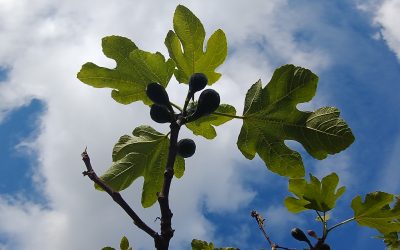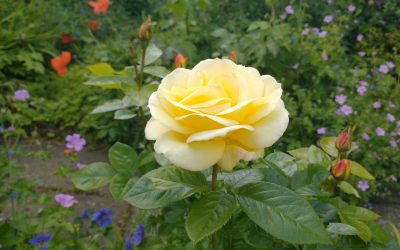In BBC Music magazine, Rebecca Franks muses on why the musicians who write books about their experience of music tend to be pianists. Read her article.
It’s a fascinating topic and one I’m often asked about. There are various possibilities: pianists are loners, and so are writers. The composers of great piano music were often people who were deeply interested in literature; pianists follow their lead. In collaborative music, pianists work from the whole score and are used to having an overview. Does this influence their way of thinking?
Or it is that people who are naturally analytical are the ones drawn to the piano in the first place? Does playing the piano, with separate musical strands for the left and right hands, and the ability to play both melody and harmony at the same time, develop the brain in a particular way?




There is definitely something about playing the piano that teaches you to hear – and think about – music as a whole, and not just the individual part or line that you are playing. Friends of mine who are professional trumpeters tell me that, from their position at the back of the orchestra, they get a very odd sound-view of the music they play, since most of it directed away from them (ie, to the audience). To remedy this odd perspective, they go to concerts themselves or listen to music at home, and then find themselves listening only for and listening to the trumpet parts, ignoring the rest of the music. I don’t think pianists, as a rule, listen that way.
Really interesting observation. Here’s the odd thing: it doesn’t seem to have been true until recently. For example, two of the greatest keyboardists who come to mind in Western music history must be Bach and Beethoven. Both renowned for their virtuosity. But how much writing did they leave behind?
Essentially zero.
Beethoven made the infamous remark “I would rather write 10,000 notes than a single letter of the alphabet.” When we go back to earlier keyboard virtuosi, like Scarlatti and Gabrieli and Bull and Gibbons, they seem to have left very little in the way of writing.
The connection twixt keyboardists and writing books only seems to have taken off sometime around the turn of the 20th century. Sergei Rachmaninoff and Ferruccio Busoni in Europe and Charles Ives in America seem to start the trend of composers or performers who also produce a significant amount of writing.
It would also prove fascinating to write a program to search the web and total up the number of words blogged by non-keyboardists since blogging began. My guess? We’d probably find that non-keyboardists write as many words nowadays as keyboard players do…but the non-keyboardists tend to do it online in blogs or personal websites, whereas the keyboardists tend to get book contracts.
Mclaren: I disagree that this is a recent phenomenon. You are forgetting Robert Schumann, who was pretty capable with a pen, although his piano-playing ceased after a hand injury. And also Felix Mendelssohn, who wrote thousands of letters, only some of which have appeared in print (and those which have, much bowdlerised).
And then there’s Charles Burney, keyboardist and composer more famous now for his writing than his music.
And of course Beethoven, despite the fact that he allegedly didn’t like writing letters of the alphabet, in fact wrote a great many letters. Mozart did as well, and it’s obvious that he enjoyed writing letters. Who knows – if Mozart had lived longer, perhaps he would have had time to write his memoirs of touring Europe as a child prodigy? Judging from his letters, he would have made a wonderful memoirist.